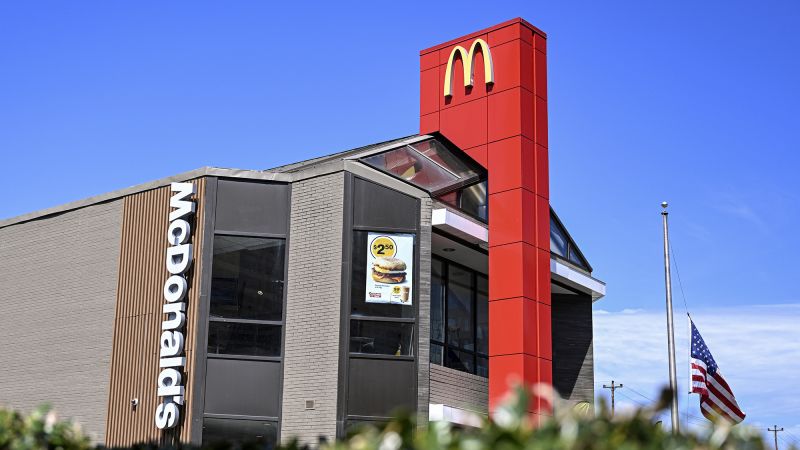McDonald’s said growing tensions in the Middle East have hurt its business.
The burger chain, reporting growing overall sales and earnings for fourth quarter, noted that the overseas tensions were weighing on the region’s sales, and the company is monitoring the evolving situation.
The Middle East doesn’t make up a huge part of its overall business. McDonald’s for the most part licenses its brand to independent companies in the region, and McDonald’s said it provided some financial assistance in the form of royalty relief or deferred cash collection.
McDonald’s noted that it provided an insignificant amount of financial assistance for franchisees impacted by the war in the Middle East. But sales in its licensed markets business, of which most Middle East companies are a part, grew just 0.7% in the last quarter, as a result of the tensions. That was far worse than the more-than 4% growth in the United States and other international businesses.
A year ago, the licensed markets business was its best-performing unit, with more than 16% sales growth.
Overall, global sales at McDonald’s locations open at least a year grew 3.4% in the fourth quarter, less then analysts expected, as protests against the company in the Middle East took its toll. That also dented its revenue, which rose to $6.41 billion but also came in slightly below expectations.
McDonald’s (MCD) stock fell slightly in premarket trading.
Last month, McDonald’s said that it’s experiencing “meaningful business impact” in the Middle East because of the war between Israel and Hamas, joining Starbucks in issuing public statements trying to squash misconceptions and boycotts affecting the brands.
In the wake of the October 7 Hamas attacks on Israel, McDonald’s Israel gave out thousands of free meals, according to posts on social media. Many McDonald’s operators in the region quickly distanced themselves from the Israeli operator’s actions. Franchise groups in Kuwait, Pakistan and other countries issued statements saying they did not share ownership with the Israeli franchise.
The vast majority of McDonald’s locations are run by local franchise operators. These operators act in many ways as independent businesses: They set wages and prices and, when they feel appropriate, make statements or donations at their discretion. That approach has helped make McDonald’s a global phenomenon, with over 40,000 locations globally, including nearly 27,000 outside of the United States, as of 2022.
In the United States, McDonald’s largest market, sales increased 4.3%, bolstered by price hikes, growth in delivery and digital orders plus clever marketing around some of its food, like the Grimace milkshake that became a viral phenomenon.
Although US sales were largely in line with expectations, fourth-quarter sales were weaker than the 8.1% it reported for its previous quarter in October.
Overall revenue for 2023 grew 10% compared to the year prior, with McDonald’s reporting $25.49 billion compared to $23.18 billion in 2022.
CEO Chris Kempczinski said the company remains “confident in the resilience of our business amid macro challenges that will persist in 2024.”
Read the full article here




